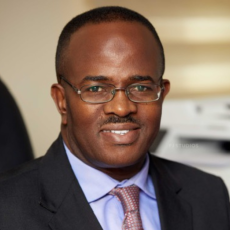Can you speak to Ghana as a mining jurisdiction?
There has been mining in Ghana for centuries. Most gold mining before the mid-nineteenth century was alluvial – informal miners recovering the gold from streams - and modern gold mining began in approximately 1860 when European concessionaires imported heavy machinery and began mining in the western areas of the country. For decades, the colonial government controlled gold mining to protect the profits of European companies. With independence in 1957, the industry entered a period of depression, but this ended shortly after the implementation of the country’s Economic Recovery (ERP) Plan in 1983 where Ghana was leveraging the mining industry to kickstart the economy and used the sector as a springboard for broad-based growth and development of the country. This gave birth to the current policy regime of the mining sector where the government decided to incentivize foreign investment and privatization of the sector. Today, the sector is largely foreign-owned, with the government holding a 10% free carried interest in most of the main active large-scale mines. Ghana is today one of the top mining jurisdictions with regard to gold mining in Africa, and we continue to find ways to leverage this sector for the benefit of the country.
How does Ghana leverage the gold mining industry to enhance the economy of the country?
The question to be answered is - what do we want to achieve with the mining industry. We have been trying extremely hard to move the conversation beyond the fiscals, such as royalties and GDP contribution, toward how we can use mining as a catalyst for development. We need to talk about what can we achieve in terms of development which we will not be able to in the absence of mining, what are the opportunities, and how can we leverage them for the development of the country. We need to identify how the mining industry can dovetail into manufacturing and fabrication to be able to leverage the industry for broad-based growth. For example, a media input for mining is activated carbon which is essentially made out of coconuts shells that are carbonized and then activated through a simple process.

Our mining industry consumes approximately US$10 million worth of activated carbon per year. Based on Ghana’s fertile conditions for the growth of coconuts, the country should develop its coconut industry and then start producing activated carbon.
We should integrate backward into agriculture, and from there, move into the manufacturing of media that can feed the mining industry. The presence of the mining industry should allow us to take advantage of other opportunities within the country where we have a competitive advantage, such as with the manufacturing of activated carbon. Another example of opportunity is the production of caustic soda. Africa has a successful coastline for the production of salt, and we believe that we should be able to transition from the production of raw salt into caustic soda and other chlorinated products which the mining industry is a major consumer of. The mining industry should create linkages and catalyze the production of inputs to feed the mining industry, which will lead to broad-based economic development.
The Chamber of Mines is conducting a study mapping the linkages between the mining and non-mining sectors to establish where we can take advantage of downstream opportunities. The University of Mines and Technology piloted a questionnaire to populate data for this ongoing study. On the back of the mining industry being a major off-taker, we believe there is an opportunity for the production of some raw inputs. To help Ghana grow sustainably, we need to look beyond the mine to other sectors of the economy.
How is the government poised to enhance the mining industry and consequently, the whole economy?
Ghana is blessed with a fantastic Minister of Lands and Natural Resources who is proactive, dynamic, understands the mining industry, and listens to what the mining players are saying. The Chamber of Mines has a great relationship with the Minerals Commission, making it easy to sit together, discuss issues, and think through what needs to be done as we are collectively working towards positioning Ghana as a hub for mining in Africa.
Besides gold, what other minerals can be abundantly produced in Ghana?
During the colonial period, Ghana was known as the Gold Coast, signaling the country’s endowment in gold. Besides gold, Ghana has also been mining manganese and bauxite for many decades, and over the past few years, there have also been commercial lithium discoveries in Ghana. Bauxite has a great value proposition and manganese and lithium are seen as critical minerals, putting Ghana in a great position to contribute to the energy transition.
What will be the main challenges and key objectives for the Chamber of Mines to accomplish over the next five to 10 years?
The main challenge and objective for the Chamber of Mines is to leverage the mining industry for broad-based growth and development of the country. We want to see other sectors of the economy grow on the back of opportunities created by the mining sector. We want to create an awareness and understanding of how different sectors can work with the mining industry to take advantage of opportunities. Secondly, in collaboration with the government, we want to continue working towards positioning Ghana as the go-to country in Africa for mining and mining services.






